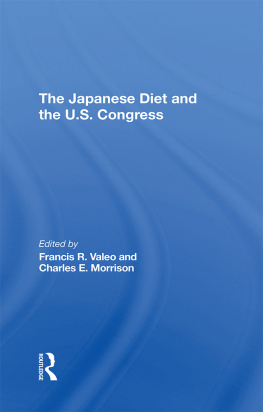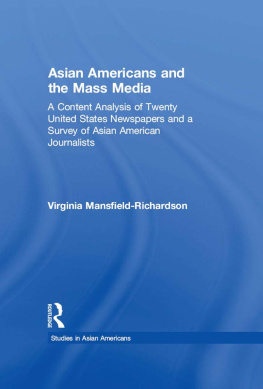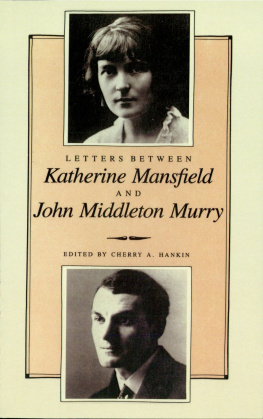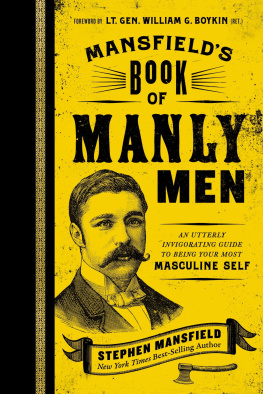
Mike Mansfield Majority Leader
Frank Valeo has skillfully captured Mike Mansfields central role in the great national debates in the 1960s and 1970s on civil rights, Vietnam, and other vital issues. This book should be read by everyone who wants to know more about those defining years for Americas leadership at home and around the world.
Senator Edward M. Kennedy
Valeo has crafted an authoritative and insightful account of a critical sixteen years in the life of a unique American political institution. As a key facilitator of the U.S. Senates operations during the Kennedy, Johnson, Nixon, and Ford presidencies, he offers a richly documented and fast-paced insiders assessment that deserves the widest possible audience.
Richard Baker, U.S. Senate Historical Office
Throughout our nations history, we have been blessed with leaders who have led us in moments of crisis and turmoil. Senator Mike Mansfield of Montana is such a leader. He led the Senate during the crucial civil rights movement and the upheaval in the 60s and 70s brought about by Vietnam and Watergate. This book is long overdue. I am happy that Mike Mansfield is being recognized for his many contributions to our nation.
Senator Daniel K. Inouye
Mike Mansfield presided over one of the most productive and significant eras in the Senate, and his role was decisive in making it so. He brought stability and integrity to the Senate and left as his legacy a better institution. Now Frank Valeo has given us a portrait of Mansfield that brings the man and the senator to life. Anybody interested in American politics and history will profit from reading this lively, interesting, and absorbing book.
Norman Ornstein, American Enterprise Institute
Too often, the taciturn, modest, self-effacing Mansfield does not get the credit he deserves, and Valeo helps to correct the historical record. Of particular value, however, is the extent to which Mansfields story sheds light on important legislative processes during a pivotal era in U.S. history. In these lamentable times, it is somewhat comforting to recall that people of character and responsibility can make a difference in how effectively government works. Where, one wonders, have all the Mansfields gone?
Leroy Ashby, Johnson Distinguished Professor of History, Washington State University
First published 1999 by M. E. Sharpe, Inc.
Published 2019 by Routledge
2 Park Square, Milton Park, Abingdon, Oxon OX14 4RN
52 Vanderbilt Avenue, New York, NY 10017
Routledge is an imprint of the Taylor & Francis Group, an informa business
Copyright 1999 by Taylor & Francis
All rights reserved. No part of this book may be reprinted or reproduced or utilised in any form or by any electronic, mechanical, or other means, now known or hereafter invented, including photocopying and recording, or in any information storage or retrieval system, without permission in writing from the publishers.
Notice:
Product or corporate names may be trademarks or registered trademarks, and are used only for identification and explanation without intent to infringe.
Library of Congress Cataloging-in-Publication Data
Valeo, Francis Ralph, 1916
Mike Mansfield, majority leader: a different kind of Senate,
19611976 / Francis R. Valeo.
p. cm.
Includes index.
ISBN 0765604507 (hardcover : alk. paper) ISBN 076504515 (pbk : alk. paper)
1. Mansfield, Mike, 1903. 2. LegislatorsUnited StatesBiography.
3. United States. Congress. SenateBiography.
4. United StatesPolitics and government19451989. I. Title.
E840.8.M25V35 1999
973.92092dc21
[B]9855373
CIP
ISBN 13: 978-0-7656-0451-4 (pbk)
To my Wife
Beth
Whose assistance and confidence were the indispensable ingredients.
About the Author
FRANCIS R. VALEO (known as Frank) spent thirty-five years in federal service. His working relationship with Mike Manfield was initiated in the late forties when he was a researcher at the Library of Congress and Mansfield was a member of the House Committee on Foreign Affairs. Valeo joined Senator Mansfields staff in 1959 and continued to serve with him when Mansfield became majority whip and then majority leader. Valeo replaced Bobby Baker as secretary for the majority in 1963 and was elected by the Senate as secretary of the Senate, serving in that capacity from 19661977. Through much of his career, he remained a close associate of Mansfield, accompanying the senator on nearly all of the latters trips abroad including three trips to Indochina (195355), three trips to China (197277), and various presidential missions for Kennedy, Johnson, and Nixon. Valeo is coauthor (with Ernest S. Griffith) of Congress: Its Contemporary Role (1975) and coeditor of the joint U.S.-Japanese parliamentary study, The Japanese Diet and the U.S. Congress (1983).
Mike Mansfield of Montana led the Senate from 1961 until 1977. It was an unbroken tenure unequalled in the annals of the Senate. It extended through the administrations of four PresidentsJohn F. Kennedy, Lyndon B. Johnson, Richard M. Nixon, and Gerald R. Ford.
The Mansfield leadership witnessed some of the most tumultuous events in the history of the Republic. They were years when the vestiges of legal racial segregation that had survived almost a century after the Civil War were finally laid to rest. The Senate at last broke through the barrier of its own rules and legislated the colorblind treatment of all Americans. The Civil Rights Act of 1964 determined that segregation should end, thereby opening the way for the races to grow together as one nation.
The period of Mansfields leadership also coincided with the conversion of the limited U.S. intrusion in Indochina into an ill-fated American war and then, thanks in part to the Senates efforts, to a complete U.S. withdrawal. Before the Vietnam War was brought to a close, however, more than 50,000 American lives were forfeited in a futile pursuit of the communist menace in Southeast Asia.
The Mansfield years were also the years when political assassination extinguished the lives of three prominent national leadersJohn F. Kennedy, Robert F. Kennedy, and Martin Luther King Jr. In the same period, President Richard Nixon and Vice-President Spiro Agnew were forced to resign from office.
Notwithstanding these and other massive shocks, such as the torching and looting of many American cities by mobs, a major constructive transformation took place in the nation. It was precipitated by an outpouring of social legislation unmatched since the early years of Roosevelts New Deal. Whether derived from Kennedys New Frontier or Johnsons Great Society, for the most part, this legislation helped American society not only to hold together but to stay abreast of a rapidly changing world.
The book provides an account of majority leader Mansfields stewardship of the Senate during this troubled period. In replacing Lyndon Johnson as leader, Mansfield brought a different style to the role. His was a quiet and understated approach, as contrasted with Johnsons, but it exercised profound influence on how the Senate reordered itself to meet the challenges of a new day.









